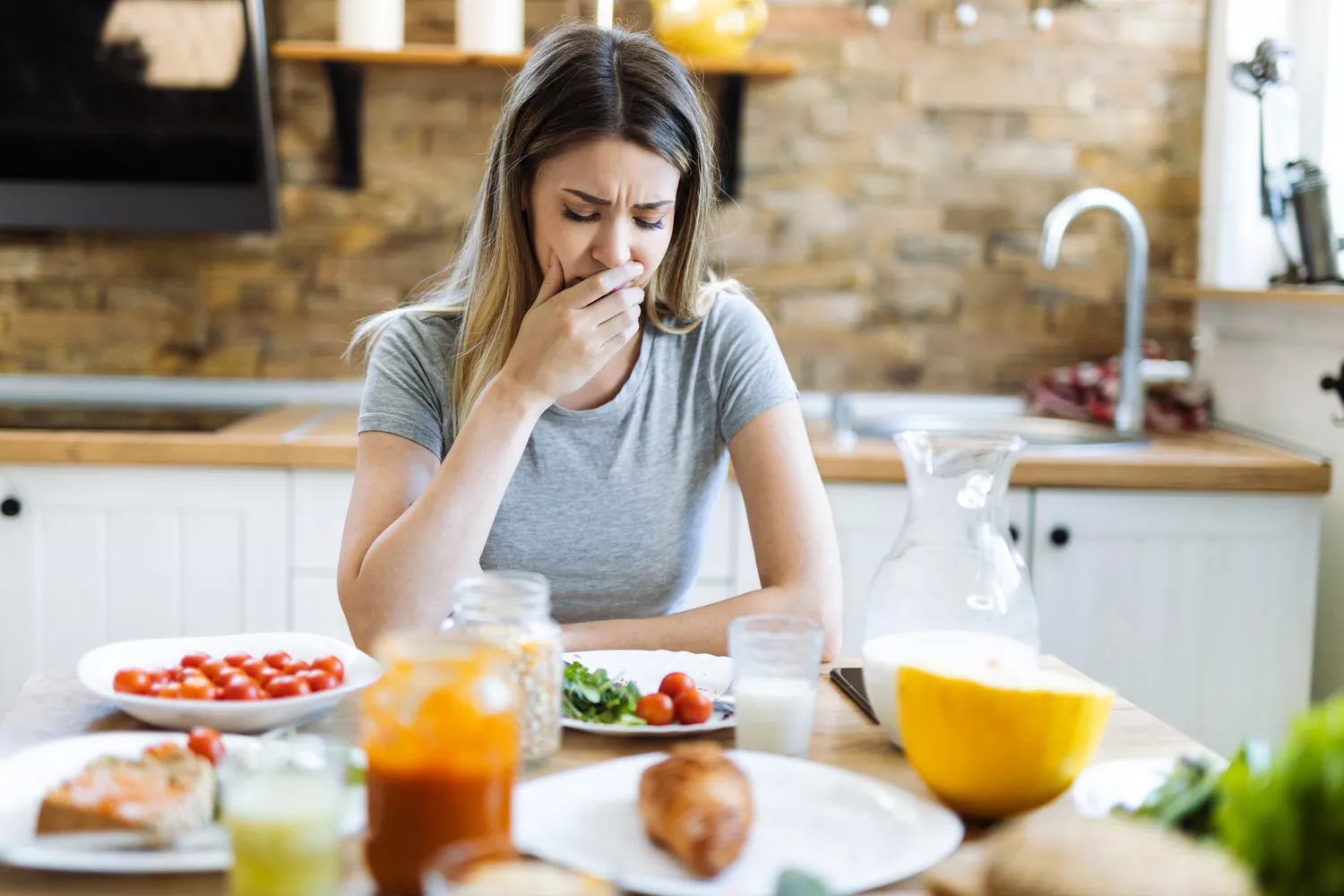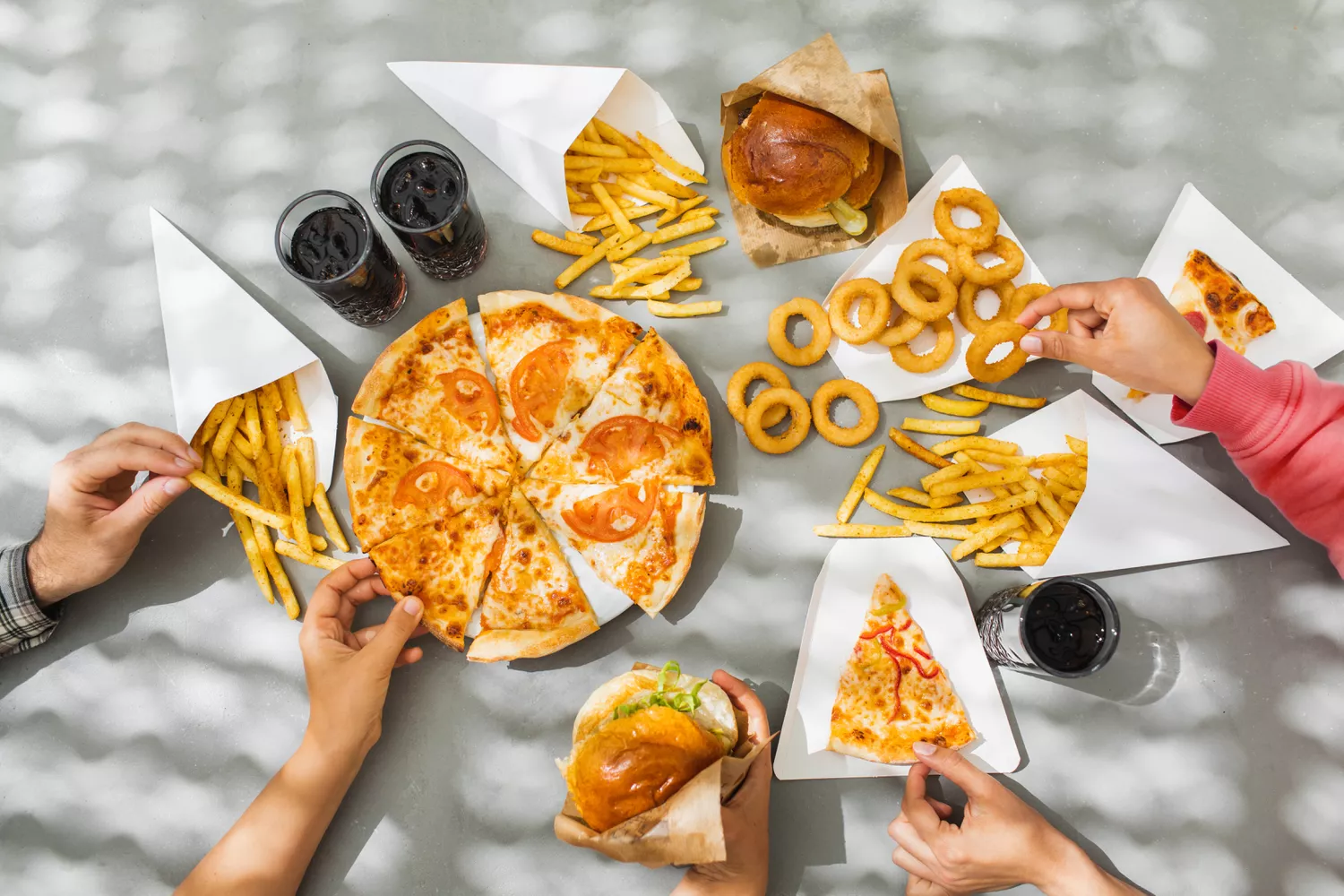Queasiness after consuming is momentary and goes away on its own. However, if signs continue or aggravate, it might suggest an Other Health Conditions
Other conditions that may cause nausea after consuming include:
Diabetes: Nausea can occur when blood glucose levels are too high or too low.1819.
American Diabetes Association. Hypoglycemia.
Anxiety: Anxiety conditions can trigger nausea and other GI symptoms after eating.20.
Liver illness: Early signs of cirrhosis (liver scarring) might include nausea, throwing up, and poor appetite.21.
Bowel obstruction: An intestinal tract blockage happens when food or stool can not travel through the gastrointestinal tract. It is frequently triggered by a hernia, surgical treatment, or cancer.22.
How Can I Get Rid of Nausea After Eating?
Here are some things to assist you stop feeling sick if you’re feeling upset:.
Stay hydrated with clear liquids.
Rest.
Get fresh air.
Draw on ice cubes.
Avoid strong smells.
Attempt chewing on ginger or sipping on ginger tea23.
Munch on saltine crackers.
Medical diagnosis.
There are many potential reasons for queasiness after eating. A doctor will look at your household and medical history, ask for more details about your symptoms, and perform a physical examination to help limit the exact cause.
Utilizing a food diary to track what you eat, what symptoms you experience after eating, and the length of time they last can likewise assist your healthcare provider make a medical diagnosis.
A healthcare provider might also advise additional screening to confirm or dismiss illness associated with queasiness and throwing up. This may consist of:24.
Blood tests.
Urine tests.
An upper GI endoscopy.
An ultrasound of the abdominal area.
A gastric emptying test, which determines the length of time it takes food to empty out of your stomach.
An X-ray of the GI system.
Treatment.
Treatment will depend upon the cause. Treatment for IBS might include following a low-FODMAP diet plan, prescription medications, and probiotics.
GERD or gallbladder illness may need a combination of techniques, consisting of prescription medications, maintaining a healthy weight, and preventing fatty foods.2510.
For food allergic reactions or intolerances, prevent foods or active ingredients that activate symptoms and carefully read food labels. If you have a stomach virus, you’ll wish to stay hydrated and prevent sweet drinks, fatty foods, caffeine, and milk products up until symptoms enhance.6.
Some conditions, like bowel obstructions, typically require surgical treatment.
How to Prevent Nausea After Eating.
You might have the ability to avoid feeling sick after consuming by:26.
Eating small, regular meals throughout the day.
Preventing spicy, greasy, and sugary foods.
Following a bland diet plan.
Restricting high-fiber foods.
Taking small bites and chewing your food well.
Preventing large meals two hours before you go to bed.
Drinking liquids slowly.
When to Contact a Healthcare Provider.
Nausea after consuming is not an indication of serious disease. But you should see a doctor if you have:27.
Severe stomach discomfort.
Blood in your vomit.
Confusion.
Signs of dehydration, like dark urine.
Stiff neck or severe headache.
Vomiting that lasts longer than 24 hoursunderlying condition such as food allergies or a gastrointestinal condition.
Depending on the cause, queasiness may be treated with dietary modifications, medications, or other remedies. Understanding what is causing your queasiness is key to discovering relief.
Here’s a look at what can trigger nausea after consuming and how to avoid it.
What Causes Nausea After Eating?
Here are some reasons you might be feeling nauseated after meals.
Gastrointestinal disorder.
You can get food poisoning after eating food infected with bacteria or poisonous compounds. Gastrointestinal disorder is frequently triggered by:.
Inappropriate washing of hands, utensils, and cooking surfaces.
Leaving food out for too long at room temperature level.
Not cooking food to a safe minimum internal temperature.
Raw meat like chicken or fish coming into contact with produce or ready-to-eat foods.
Signs like nausea, vomiting, diarrhea, and stomach cramping normally start within 30 minutes to several hours after consuming the contaminated food. They generally last for a couple of hours to numerous days and disappear by themselves.
Food Allergies or Intolerances.
Food allergies happen when your body immune system determines specific foods, such as cow’s milk or nuts, as a damaging invaders. It overreacts, setting off the release of histamine and other symptom-causing chemicals. Signs can appear within minutes of consuming, varying from moderate queasiness and abdominal pain to hives and problem breathing.
Common food allergies include:.
Milk.
Eggs.
Soy.
Peanuts.
Tree nuts.
Wheat.
Shellfish.
Fish.
Unlike food allergic reactions, food intolerances do not include the immune system. Rather, they happen when the body has problem digesting certain foods or food components. Food intolerances can cause bloating, gas, stomach pain, or diarrhea.
The most common type of food intolerance is lactose intolerance, which happens when your body can not digest lactose, a sugar in milk and dairy products.
Other common food intolerances include:.
Gluten.
Caffeine.
Histamine, found in foods like red wine and cheese.
Alcohol.
Sulfites, discovered in beer, cider, and wine.
Salicylates, which are naturally present in numerous fruits, vegetables, and spices.
Monosodium glutamate (MSG), discovered in treated meats and mouthwatering foods.
Stomach Virus.
Viral gastroenteritis, likewise called the “stomach influenza,” is an infection of the intestinal tracts that causes diarrhea, queasiness, throwing up, and stomach pain. In some cases, it might also trigger fever.

The norovirus is the most common reason for the stomach influenza. Signs typically appear within 12 to 48 hours of exposure and last as much as 3 days. Norovirus is extremely infectious and rapidly spreads from individual to person. You can get it from direct contact, consuming polluted foods, and touching surfaces polluted with the infection, and then touching your mouth.
Gastrointestinal Diseases.
Gastrointestinal conditions, including irritable bowel syndrome (IBS), gastroparesis, and gastroesophageal reflux illness (GERD), can trigger nausea after consuming.
Here is a take a look at typical gastrointestinal illness that might cause queasiness after consuming.
IBS: A chronic condition of the digestive tract that causes modifications in bowel habits, stomach discomfort, and bloating with no visible signs of disease or damage in your digestion system. The condition affects around 12% of people in the United States.
Gastroparesis: Also known as postponed stomach emptying, gastroparesis is a condition that triggers food to go through the stomach much slower than it should. Typical symptoms consist of early satiety, nausea, and throwing up after consuming. Gastroparesis is typically brought on by diabetes.
GERD: A condition that happens when stomach contents recede up into your esophagus. It typically causes heartburn and regurgitation. It may likewise cause queasiness.
Gallbladder illness: Chronic gallbladder illness involves gallstones and swelling. This can result in a gallbladder attack, which tends to take place after heavy meals. Gallbladder attacks can cause queasiness, throwing up, abdominal pain, and fever.
Pancreatitis: Characterized by swelling of the pancreas, pancreatitis triggers abdominal pain, nausea, and throwing up. It can be triggered by gallstones, medications, and heavy alcohol use.
Medications.
Some medications can trigger queasiness and hunger changes. These might include:.
Antibiotics.
Antidepressants.
Cancer treatments, such as chemotherapy.
Discomfort medicines.
Feelings of nausea frequently improve when your body adjusts to the medication or treatment is stopped.
Pregnancy.
Hormone changes happen during pregnancy that may make you feel nauseated after ending up a meal. It most typically takes place early in the day, pregnancy queasiness– or morning illness– can happen at any time of the day or night.
Around 7 in 10 pregnant people experience queasiness in their first trimester. It normally enhances in the second trimester however may persist throughout pregnancy.
Mild cases of morning illness will not harm you or your infant. However, severe nausea and vomiting throughout pregnancy (hyperemesis gravidarum) may require medical treatment.



